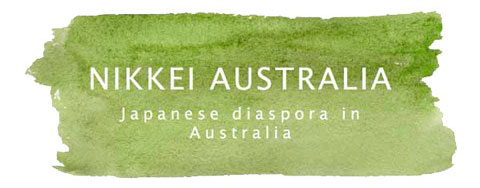Nikkei Australia member Andrew Hasegawa has been awarded a Scholar in Residence fellowship 2023-2024 in the Past Wrongs Future Choices project.
Andrew Hasegawa is a fourth-generation Nikkei Australian and the great-grandson of Setsutaro Hasegawa, who migrated to Australia in 1897. Born in 1960, Andrew’s Japanese ancestry was the inspiration for him to learn Japanese and live in Japan for many years. These days he lives in Melbourne and researches the story of the Japanese in Australia.
Working Paper Proposal by Andrew Hasegawa
Writs of Habeas Corpus and the Nikkei Fight for Freedom: A Comparative Analysis Featuring Kojiro Katsumata & Mitsuye Endo
Project Outline
This working paper will examine the Nikkei fight for freedom from incarceration in Australia and the United States using writs of habeas corpus in the 1940s. It will examine it from the point of view of two litigants: Kojiro Katsumata in Australia and Mitsuye Endo in the USA. Katsumata’s fight to remain in Australia sheds light on the processes leading up to the deportations. I look to explore this against a background of hostility towards the Japanese as war came to an end. In the United States the experience of the Nikkei initially followed a similar trajectory to Australia with their arrest and incarceration. However the final outcome for Nikkei in the USA was freedom while in Australia for most it was deportation against their will. The reasons for the contrast in outcomes will be an area for this working paper to investigate.
The story of Katsumata will be a feature of this research as it remains almost unknown. This is the only case of a Japanese in Australia using a writ of habeas corpus to win his freedom. Extensive archival documents provide us with granular insight into what was happening behind the scenes as the Government authorised the deportations. The central archival file, located at the National Archives of Australia, about the writ of habeas corpus was only made public in September 2021. This makes the telling of this micro-history important: an opportunity to do something new and significant on the research front on behalf of the PWFC project.
To understand the Katsumata writ of habeas corpus with greater clarity this working paper will draw into the narrative the example of Endo in the United States. The writ issued in her name and the subsequent Supreme Court ruling had profound implications for the Nikkei that resulted in their release from internment. It is evidence of what a powerful legal tool a writ of habeas corpus can be. In stark contrast only Katsumata won his liberty in Australia as a result of his legal action. This leads me to ask the following questions. How can it be that the writ of habeas corpus issued in his name went unreported? Why was the outcome in Australia so different to what occurred in the USA? 77 years since Katsumata’s release from internment it is time to answer these questions.
In Australia, with the exception of Katsumata no one put up a legal fight to stay. Written appeals to remain were ignored. In the US the legal system delivered freedom for the Nikkei who went onto fight for apologies and redress. I look to examine what galvanised the Nikkei in the USA into political action and why in Australia there was silence.
Andrew will be taking residency at the Centre for Global Studies and the Centre for Asia Pacific Initiatives at the University of Victoria, Canada along with other scholars and artists in September/October 2023.






Huge congratulations Andrew. This is important research.
thank you Masako. I am humbled to be granted this opportunity. I didn’t think it could happen. I hope others can learn from my proposal.
Congratulations Andrew. All the best of luck.
Thank you Jim: this residency is for all of us. To raise awareness of what happened to the Japanese in Australia in the forties. I hope if there are future residencies I inspire others to prepare and apply.
Such a fascinating topic, Andrew! I can’t wait to read about your findings. And enjoy the residency!
Thank you Christine. I will enjoy the residency it is the opportunity of a lifetime.